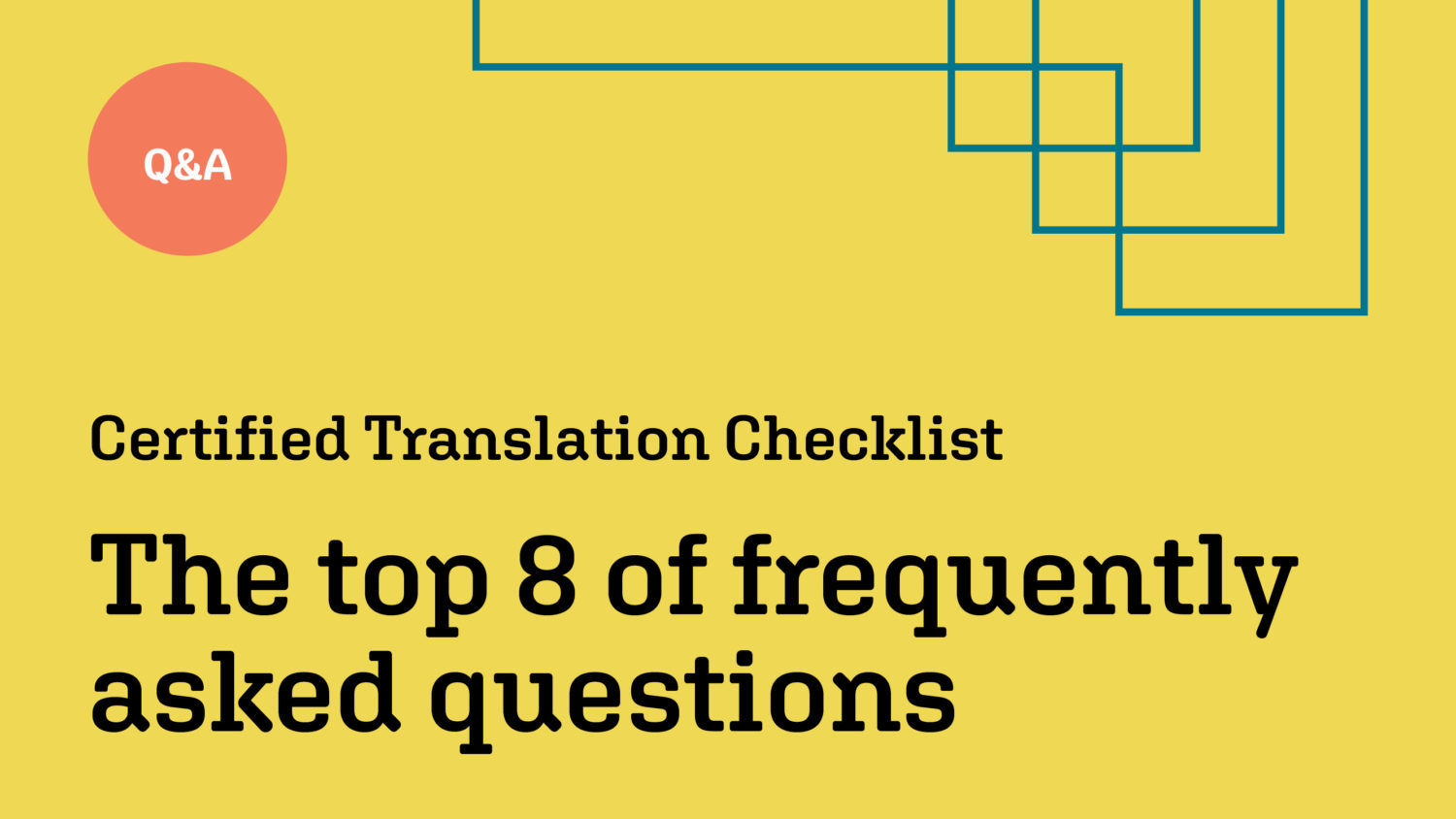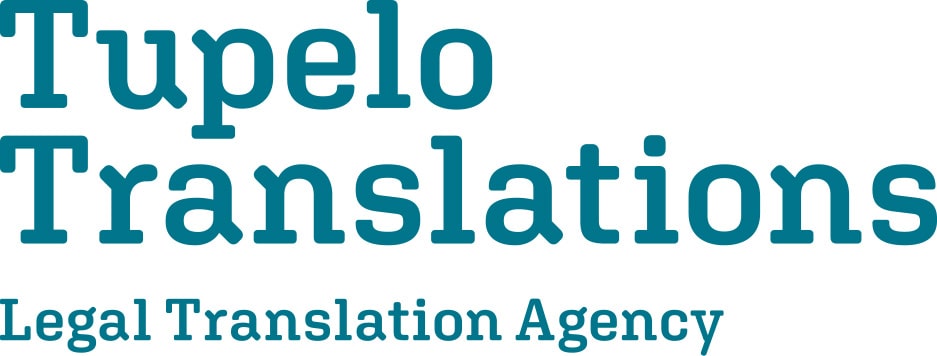Certified Translation Checklist
Certified
Translation
Checklist

Do you need a certified translation of a birth certificate, articles of association or other official documents, but you just don’t know where to start? This Certified Translation Checklist will help you to untangle the red tape and hopefully make your life a little less complicated!
What does the translator need?
Scan
For a certified translation the translator needs a clear scan of the original document. Some authorities request that the original documents are attached to the translation, so please check the requirements of the receiving authority.
Original
If the receiving authority requires you to have the original document attached to the translation, then you can send it to us by post. We advise that you do so by recorded delivery – so that your documents do not get lost – to the following address: Zwaerdecroonstraat 52B, 3021 WV Rotterdam.
Tip: make a scan of the original and email this to us, so we can get a head start on the translation.
What does a certified translation look like?
A certified translation consists of the following documents (in the following order), attached to each other with a small metal eyelet:
- The translation of the original document;
- The translator’s statement, in which the translator declares that the text is a true and faithful translation of the original document;
- A photocopy of the original document (in this order);
- The translator stamps and initials each page and signs the statement;
- More often than not, only a hard copy of the certified translation may be submitted. It could be, however, that you only need to send a digital version. The receiving authority in question will indicate which version it wants.
Apostille, legalisation or neither?
Each receiving authority has its own specific requirements, so be sure to check what they are.
Apostille
An apostille is a stamp from the district court. If the country, in which the receiving authority is located, is part of the Apostille Convention, then you will only need an apostille. If this is not the case, then you’ll need legalisation stamps.
You can obtain an apostille at any district court in the Netherlands. At the Rotterdam District Court, you can get an apostille at the Central Information Desk.
Opening hours: 8:30 to 17:00 from Monday to Friday. Keep in mind that payments can no longer be made after 16:30.
Address Rotterdam District Court
Information from the Dutch Government about apostilles
Check if your country is listed in the Convention
Legalisation
If your country is not part of the Apostille Convention, then you need to obtain two legalisation stamps: one from the district court and one from the Consular Service Centre (CDC) at the Ministry of Foreign Affairs in The Hague, across from platform 1 at The Hague Central Station. These stamps have to be obtained in that order, since the district court checks the translator’s details specified on the translator’s statement and the CDC checks the legalisation stamp from the district court.
If you go to the CDC in The Hague, make sure you hand over the translation before 11:30 a.m., so that it can be legalised while you wait. Keep in mind that you will have to wait for quite a bit! If you hand it in after 11:30, you will have to pick up your translation the next day.
Opening hours: 9:00 a.m. to 12:30 p.m. from Monday to Friday
Information from the CDC about legalisation
Embassy
If you need legalisation stamps from the district court and the CDC, you will most likely also need to have the translation(s) including the stamps legalised by the embassy of the country in which the receiving authority is situated. Therefore, enquire at the embassy in question if this also applies to your situation and what it will cost.
Neither
It could also be that you don’t need any of the above. So, again, please check beforehand with the receiving authority its requirements with respect to certified translations.
How many apostilles or legalisations do you need?
Each individual document needs a separate apostille or legalisation, unless otherwise specified. This means you can’t attach several documents to each other to save costs – the certified translations will not be accepted by the receiving authority.
Costs
An apostille and legalisation stamp from the district court costs € 26 each. A legalisation from the CDC costs € 10 each.
You can obtain these yourself. If you prefer, Tupelo Translations can obtain them for you for a handling fee.
Delivery by post
You can come and collect the certified translation at the office of Tupelo Translations at Delftseplein 36 by appointment only, or we can send it by recorded delivery. The postal rate with a weight not exceeding 2 kg is as follows:
Within the Netherlands: € 11.30;
Within Europe: € 12.00 (zone 1) or € 14.50 (zone 2);
Outside Europe: € 23.50.
The rates are subject to changes by Postnl.
If you choose to send within the Netherlands, you should receive the translation the next day, excluding Sundays, Mondays and Bank Holidays. Please note you will need to sign for receipt. Once your translation has been shipped, you will receive a photocopy of the tracking code.
For delivery times outside the Netherlands, please see the question Shipment by post in our FAQ.
Other language combinations
If you need your documents translated into a language other than from Dutch into English and vice versa, please go the website of Wbtv (Register of Sworn Court Interpreters and Translators). The website is in Dutch only, but here you can find a certified translator or interpreter in your language combination.
More questions?
Have a look at our frequently asked questions.
Also read:
our blog about the certified translator.
Also read:
more information from the Dutch Ministry of Foreign Affairs about legalisation.
Don’t see your type of text listed here? Not to worry, we can do plenty more! Request a quote and we will respond to you soon to let you know how we can be of service.
Why you choose us
- EN-NL / NL-EN
- Legal
- Certified
- Experienced
- Quality
- Advice
Urgent translation
Sometimes you need a translation the same day or in the evening. We understand the importance of your assignment, especially when time is pressing. We are committed to going the extra mile to help you meet your deadline. For these urgent translations, we add a 25% urgency fee to the regular rate.


